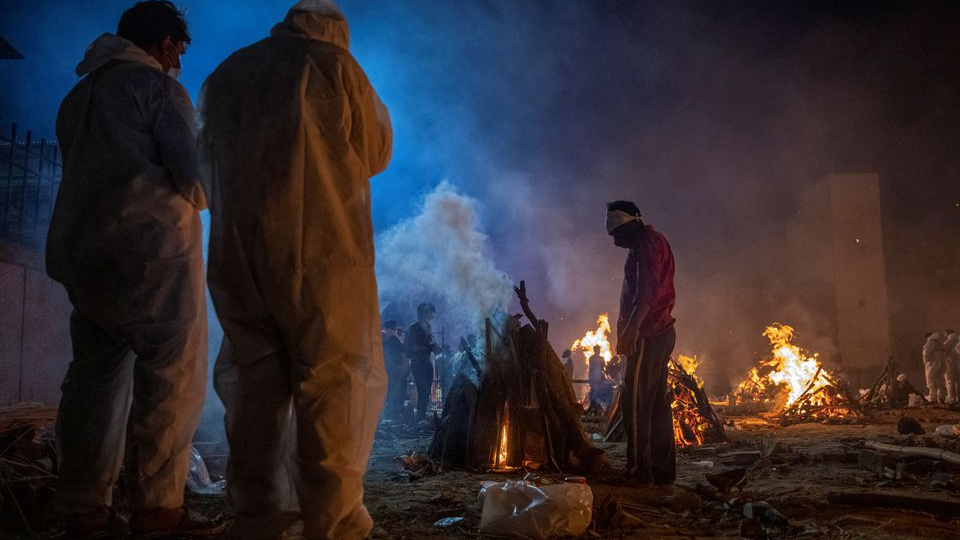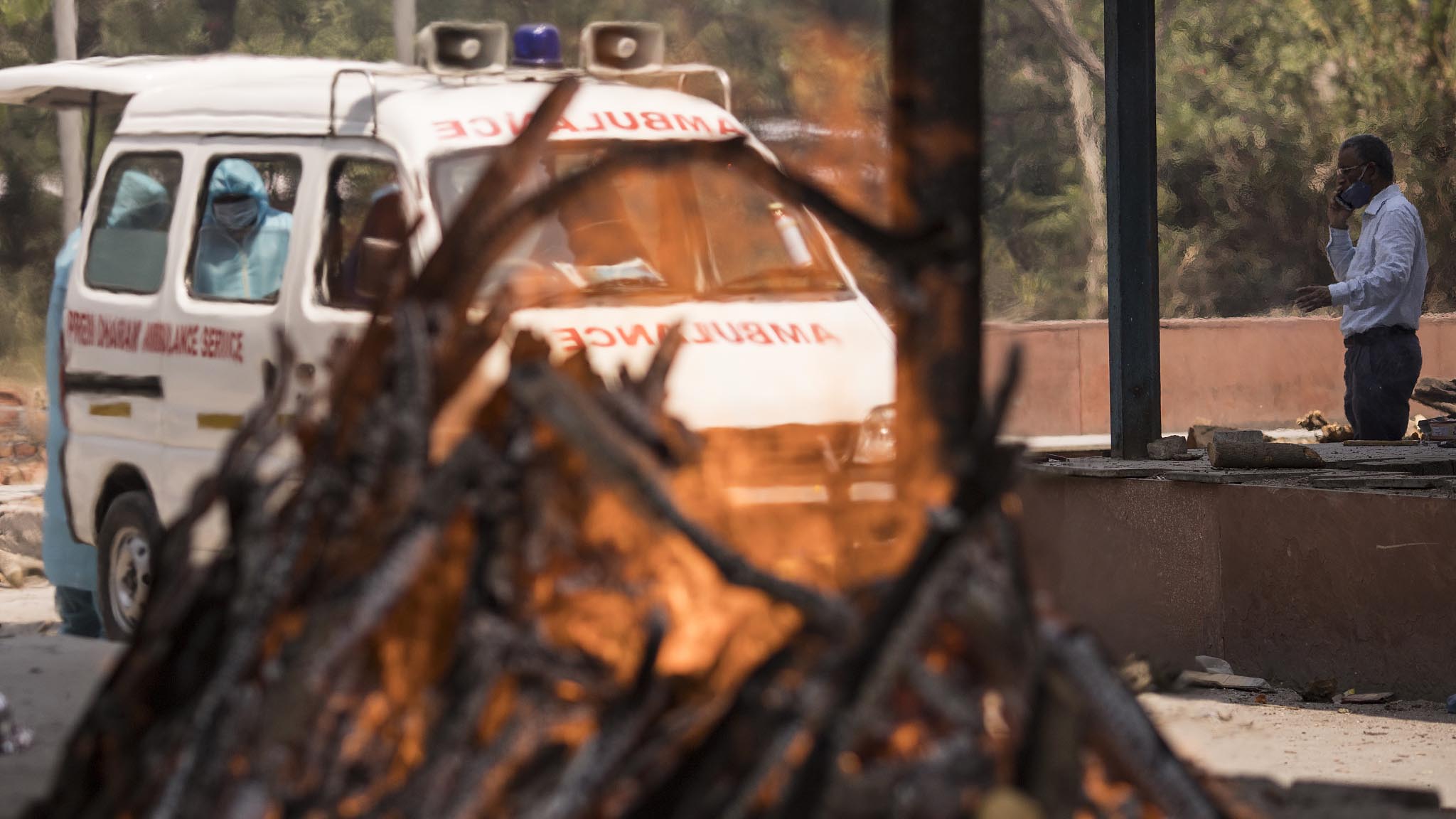
People cremate the body of a victim of COVID-19 at a crematorium ground in New Delhi, India, April 23, 2021. /Reuters
People cremate the body of a victim of COVID-19 at a crematorium ground in New Delhi, India, April 23, 2021. /Reuters
Overwhelmed hospitals in India begged for oxygen supplies on Saturday as the country's coronavirus infections soared again overnight in a "tsunami" of disease, setting a new world record for cases for the third consecutive day.
Max Healthcare, which runs a network of hospitals in north India, tweeted that it had less than two hours of oxygen left while Fortis Healthcare, another big chain, said it was suspending new admissions in Delhi.
"We are running on backup, waiting for supplies since morning," Fortis said.
India is in the grip of a rampaging second wave of the pandemic, hitting a rate of one COVID-19 death in just under every four minutes in Delhi as the capital's underfunded health system buckles.
The shortage of oxygen at hospitals across the country had compelled Indian railways to run oxygen express trains by sourcing the gas from steel plants.
Trains delivered nearly 150 tons of oxygen across the country over the past 24 hours, the state-run Press Information Bureau said.
The government has also deployed military planes to get oxygen from the far corners of the country and overseas, including Singapore.
The number of cases across the country of around 1.3 billion rose overnight by 346,786, the health ministry said, for a total of 16.6 million, including 189,544 deaths.
COVID-19 deaths rose by 2,624 over the past 24 hours, the highest daily rate for the country so far. Crematoriums across Delhi said they were full and asked grieving families to wait.
03:21

Hospitals in Delhi asked the city's high court in the past week to order the state and federal governments to make emergency arrangements for medical supplies, mainly oxygen.
"It's a tsunami. How are we trying to build capacity?" was the question the court put to the state and federal governments in response to the petition.
Television showed families tending to the sick in hospital corridors and streets as they waited for medical attention.
India surpassed the U.S. record of 297,430 single-day infections anywhere in the world on Thursday, making it the global epicenter of a pandemic that is waning in many other countries.
The federal government had declared it had beaten back the coronavirus in February and lifted restrictions, allowing for the resumption of big gatherings, which some experts believe was a mistake.
Others said that it could also be a more dangerous variant of the virus coursing through India. It is the world's second most populous country and people live in close proximity, often six to a room.
"While complacency in adhering to masks and physical distancing might have played a role, it seems increasingly likely that this second wave has been fuelled by a much more virulent strain," wrote Vikram Patel, professor of global health at Harvard Medical School, in the Indian Express.
Experts say the only way India can turn the tide is to ramp up vaccinations and impose strict lockdowns in the so-called red zones of high infection. It has opened up the immunization program to all adults but faces a shortage.
(With input from Reuters and Xinhua)

